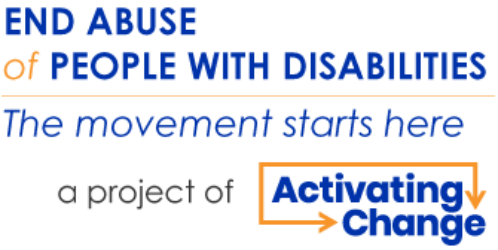Centering Survivors with Disabilities in Your Organizational Policies
When survivors with disabilities and Deaf survivors engage with your victim service organization or disability program, they are necessarily engaging with the policies that guide the delivery of your services. Regardless of they type of organization, failure to account for the lived experiences of survivors with disabilities in your organizational polices results in delays in service provision, confusion among staff about what is allowed, safety concerns among survivors, the provision of inadequate or unsafe services, or the denial of services completely.
This two-part webinar series examined key policies that victim service and disability organizations should have in place to account for unique circumstances in the lives of survivors with disabilities, including personal care attendants, service animals and guardianship.
